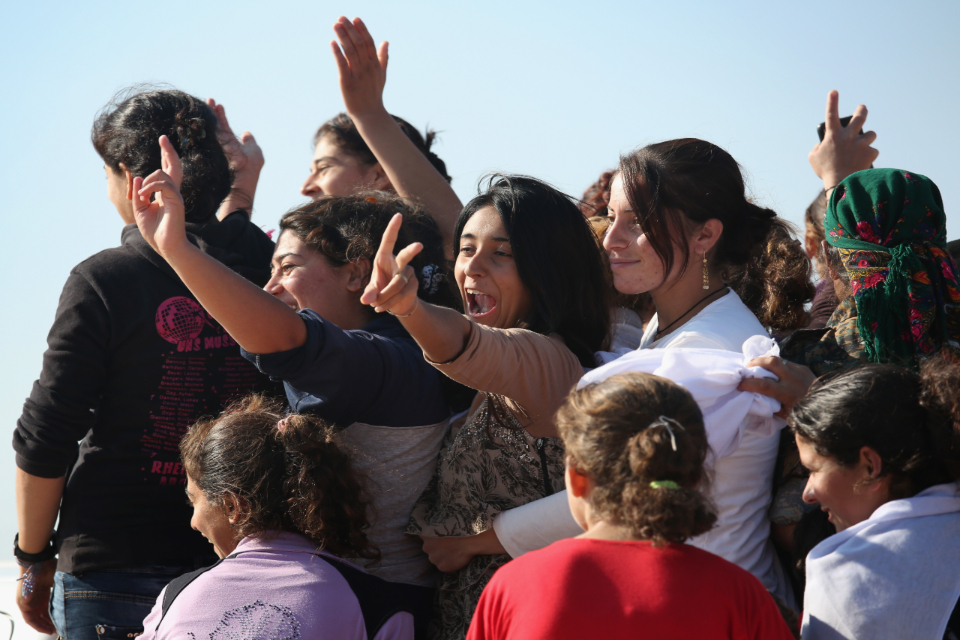We haven’t won fight against Daesh yet: article by Jeremy Hunt
Writing in the Sunday Times, the Foreign Secretary reflects on the fall of Daesh, and why the fight to tackle its poisonous ideology continues.

The words of the leader of Isis were the purest hubris. In the summer of 2014, he claimed that he would “conquer Rome and own the world”. At that time, Isis controlled an area of Syria and Iraq roughly the size of the UK. Its terrorists were imposing a rule of obscurantist barbarism on about 7m people.
Yet today (Saturday 23 March 2019), the last fragment of territory is prised from its grasp. We should welcome the blow struck against one of the most depraved terrorist movements in history, guilty of imposing unspeakable suffering on countless people in the Middle East.
We should keep at the centre of our minds the bereaved families of the Britons who were murdered by terrorists inspired by Isis. And we should remember the sexual slavery inflicted on women and girls in the territories it occupied. Isis recruits were given a pamphlet called Questions and Answers on Taking Captives and Slaves. One passage read: “It is permissible to buy, sell or give as a gift female captives or slaves, for they are merely property.”
Nadia Murad, the brave Nobel laureate, was among thousands of women from the Yazidi minority treated in this abominable way. In her book, she wrote: “When Daesh [Isis] took over Sinjar and began kidnapping Yazidis, they called their human spoils sabaya, referring to the young women they would buy and sell as sex slaves. This was part of their plan for us.”
The hard lesson for those who opposed military action [political content removed] is that, without the use of force, this sickening behaviour would have continued unchecked. They should reflect that whatever mistakes may have been made in the past, it would be profoundly wrong to rule out military action in all circumstances.
Another myth is that the battle against Isis has been waged largely by Britain, America and other western countries. In fact, we are part of a global coalition of no fewer than 75 countries, including many in the Middle East, adding to the moral as well as practical force of our actions. The Iraqi security forces and the Syrian Democratic Forces have borne the brunt of the ground fighting: they deserve our thanks for their courage and sacrifice.
But we should not mistake the loss of territory by Isis for final defeat. As they are driven underground, they are adopting insurgency tactics and forming covert networks in Syria and Iraq. Isis remains a threat, so military action will continue to be necessary.
The survival of their murderous ideology does not depend on control of territory. They can still use the internet to raise funds and spread the propaganda that encouraged young people in Britain such as Shamima Begum with such terrible consequences.
I believe we can draw three lessons. First, that the internet is part of the battlefield just as much as the sands of Syria or Iraq. Since 2016, Britain has led the international campaign to counter the ability of Isis propaganda to incite, inspire and recruit. The Foreign Office hosts the global coalition’s strategic communications cell, putting UK expertise at the heart of the effort to expose the reality behind Isis lies.
Second, the successes against Isis would not have been possible without a broad coalition under US leadership, even though America is much further away from the conflict zone than European countries. If we want the US to continue to play its part in maintaining peace around the world, European nations must be prepared to carry our share of the global burden.
Finally, even if Isis has lost physical territory today, other extremist ideologies will be back tomorrow. Isis was a successor to al-Qaeda and the movement will spawn its own successors. History shows that groups such as Isis can survive and remain dangerous even without territory.
So we must continue to be vigilant. That means pressing on with military action while countering online propaganda and using every diplomatic and humanitarian lever to address the conditions that allowed the rise of Isis in the first place. It also means defending our democratic liberal values with much more confidence.
And our confidence is justified, because while the struggle against Isis is not over, the recapture of its territory means a major battle has been won.